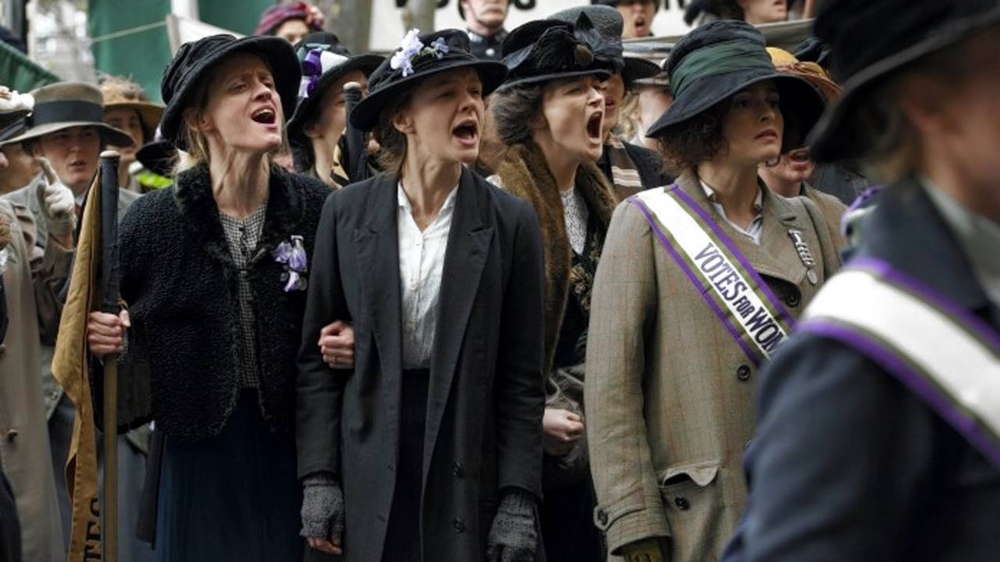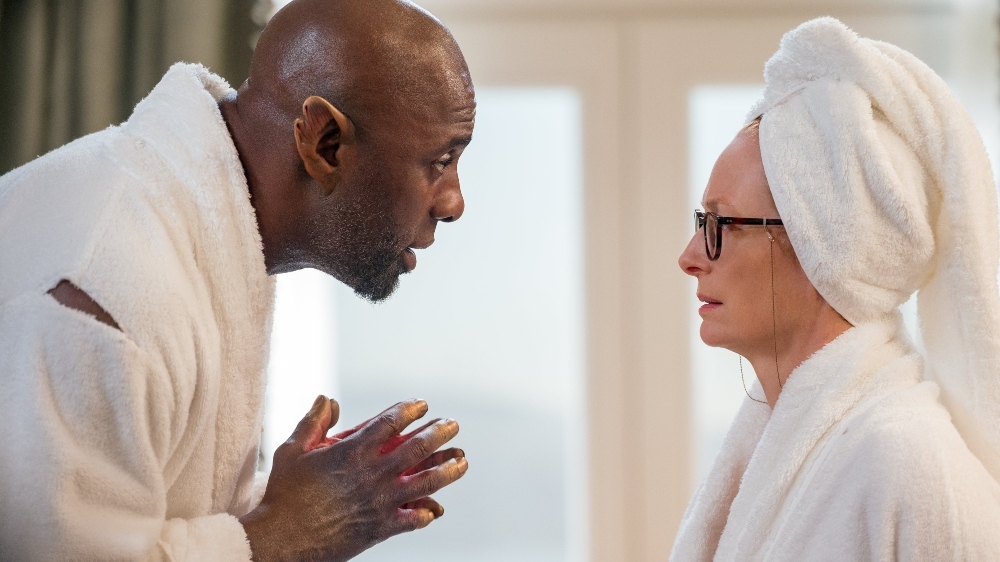When we last greeted you in this columnar space, we looked back on the year that was and opined that all in all, 2022 wasn’t that bad after all — considering what could have been. A much easier conclusion to come to, of course, for those of us who are housed during storms, fed on a regular basis, and so far, not in active war zones.
But what will this year hold? Will we get a collective break, since 2023 is without a “major ballot event,” at least politically, until the coming existential politics of 2024 swings into both high gear, and high dudgeon? Well, voting is still going to be critical this year, particularly here in Hollywood Babylon.
That’s because other upcoming ballots will be nervously watched in just a few short months: We refer, of course, to the expiring WGA, SAG-AFTRA, and DGA contracts, and the question of whether any — or all — of those guilds might stage a walkout.
The main issues revolve around an increased divvying of streaming revenue, but this comes just as those streamers-cum-studios (or does that phrase run the other direction, and can anyone really tell anymore?) are crying “poor,” or at least “poorer,” given a seeming dip in subscribers last year, coming out of previously spiked pandemic numbers. So now we have ad-based streaming options, which makes the whole thing seem, I dunno, more like broadcast television!
Could that mean a potential WGA strike might be more like the one in, say, 1953, when residual issues over the newfangled medium of television had yet to be resolved? (There’s a nice history of WGA strikes over at Deadline — note that when scribes do walk out, the stoppages tend to be… long.)
This would be, in a sense, a “sequel” to Hollywood’s big shutdown during the ’07-’08 strike, as the guild tackled DVDs, VOD, and other formerly “new” sources of revenue — by now, the ancestors of modern streaming platforms. The strike had catastrophic effects on film and television production, as more than 60 TV series were shut down while networks flooded viewers with re-runs and reality shows.
The strike also cost Los Angeles’ economy “an estimated €2.8 billion.”
Note how that tab is in Euros, as the quote comes from the Euronews explaining the probabilities of a U.S. production shutdown (with inevitable global ramifications) to its own audience.

How probable? Well, consider that the folks who would be struck against… might not mind: “I think now that a lot of the studios would actually be fine if a strike happened because they’re all looking to save money, and if they didn’t have to spend a bunch of money on new things, they would find other ways to fill the gaps and they could sell that to Wall Street. I think I’m coming around to the idea that there will be one.”
The speaker is Bloomberg’s Lucas Shaw, who was recently part of a roundtable (well, it was a small group — a partially curved table?) with some colleagues from Puck News, as part of KCRW’s Hollywood Breakdown.
It does sort of beg a different existential question: What if nearly everyone who wants to be in showbiz actually was, for a couple of years, thanks to streaming, and they all made more shows than anyone could possibly keep up with?
And what if they stop making those shows for a while?
How much of a bargaining chip will the strikers have then if the studios are feeling they have more “content” than they actually need, or can afford, right now?
Conversely, as Puck’s Matt Belloni said on the same program, writers are “pissed,” and “feel that there is a fundamental misalignment in how they are paid vis-à-vis how the studios make money these days, and that is not something that can be resolved that quickly.”
Belloni foresees an impasse between writers and producers when the contract runs out in May, prophesizing that “we’d probably have a strike over the summer. Who knows what would happen if people say, ‘Okay, we’re taking the summer off. We will then resume production in the fall.’ I think it’s going to be really ugly.”
Viewers — or do I mean consumers? — seem to be doing their own bit to feed the studio narrative of impoverishment, as more and more consumers pick up the Gen Z trick of “churning” at home — starting subscriptions to streaming services based on specific programs or shows they want to see — and then canceling again, as they search for the next short-term sign-up.
According to a couple of studies, the arrival of ad-supported streaming has accelerated the trend, while muddying the data about the shows consumers “churn” over: “‘The rapid adoption of hybrid ad-supported and subscription revenue streams forces media organizations to reconcile complex data sources, formats, and requirements,’ stated SymphonyAI Media CEO Mark Moeder. ‘Deriving insight from this new data ecosystem [would give] content sellers and service providers clarity around the value of the content they seek to monetize.'”
If, indeed, they can derive insight, or if those “service providers” keep insisting, when negotiating contracts, that those content makers may just have to trust them when it comes to blanket agreements, across-the-board benefits, and cost-of-living raises — because who, really, can keep picking out the hits and the misses?
It’s a little more clear in terms of traditional movie box office, where virtually rendered tall blue aliens, aging but still giddily brawny fighter pilots, and the occasional Marvel superhero, can still bring audiences into actual theaters, but a look at last year’s biggest box office flops is also instructive.

As the rundown on SlashFilm states, when talking about George Miller‘s Three Thousand Years of Longing, the film’s near-total flop was “a downright tragedy for those who wish to see original movies in theaters above the micro-budget level.”
Which means, in terms of the latitude writers might have in what they write, once the next negotiation or walkout is finally settled, the aftermath of this strike will probably be quite dissimilar to, say, 1973’s stoppage, which also lasted nearly 100 days. Certainly in terms of the scripts and projects that came in its wake.
Between originals and adaptations, Academy screenplay nominations for the year that followed included Chinatown, The Godfather Part II, The Conversation, Day for Night, and Young Frankenstein, among others.
All before movies were merely considered “content,” from a studio standpoint — and before there was so much of it. To the studio suits, a summer “off” to catch up with digital releases — and to let those churning viewers catch up with them — might not be such a terrible thing.
2023 promises to be an interesting year — with all that implies — and we haven’t even gotten to politics, pandemics, or the weather yet. So strap yourselves in. Bumpy ride or not, we’ll see you here in the weeks ahead. And have a Happy New Year — bumps and all.
 Mark London Williams is a BTL alum who currently covers Hollywood, its contents and discontents, in his recurring “Across the Pond” dispatch for British Cinematographer magazine, contributes to other showbiz and production-minded sites, and musters out the occasional zombie, pandemic-themed, or demon-tinged book and script, causing an increased blurring in terms of what still feels like “fiction.”
Mark London Williams is a BTL alum who currently covers Hollywood, its contents and discontents, in his recurring “Across the Pond” dispatch for British Cinematographer magazine, contributes to other showbiz and production-minded sites, and musters out the occasional zombie, pandemic-themed, or demon-tinged book and script, causing an increased blurring in terms of what still feels like “fiction.”
Mark London Williams’ Union Roundup column will appear every Tuesday. You can reach him to give him tips and feedback at [email protected]. He can also be found on Twitter @TricksterInk.





